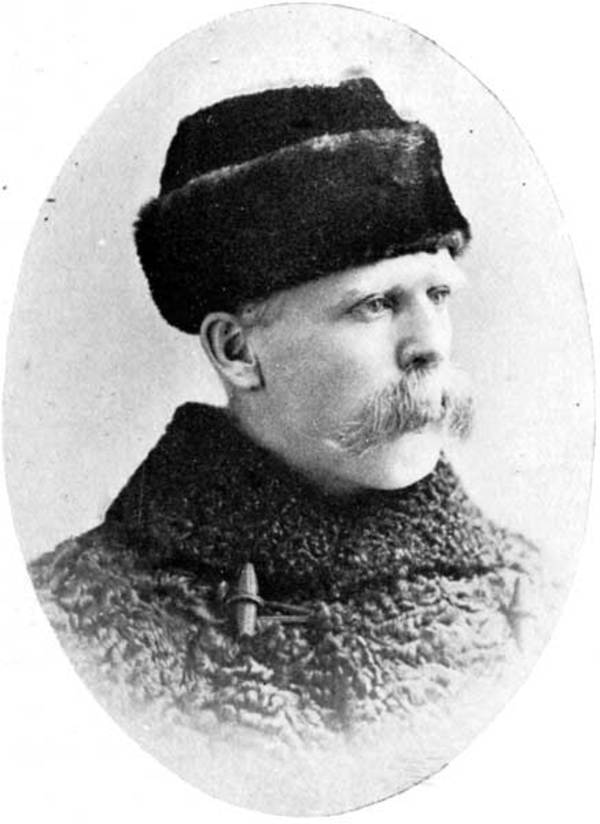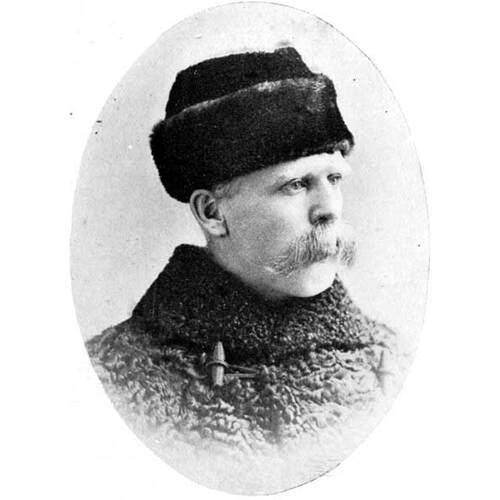
Source: Link
CROWE, GEORGE READING, businessman and politician; b. 22 Oct. 1852 in Old Barns, N.S., son of James Crowe, a shipbuilder, and Harriet Archibald; m. 29 Dec. 1875 Mary Elizabeth Alexander (d. 1918) in Clifton, N.S., and they had two daughters and one son; d. 7 Sept. 1924 in Winnipeg.
After receiving a public school education in Nova Scotia, George Crowe worked for his father in shipbuilding. He received some instruction in business in Halifax and was employed for a brief period in Saint John. His attention turned to railway construction, a burgeoning industry during the 1870s. Crowe found a job with the Intercolonial Railway, but the northwest beckoned and he moved to Manitoba in 1879. The province was rapidly expanding its rail system and Winnipeg was proving to be the gateway to the west.
Crowe’s career would see him active in almost all the significant industries of western Canada. He acted as a subcontractor for construction on the Canadian Pacific Railway east and west of Rat Portage (Kenora, Ont.). In 1883 he entered the lumber business in the Point Douglas (Winnipeg) area, founding Boyd and Crowe with Nathaniel Boyd. By 1890 the firm no longer existed and Crowe had established H. Crowe and Company, lumber and grain merchants, with his brother Herbert. Soon the firm concentrated exclusively on the growing grain trade. As Manitoba, and Winnipeg in particular, developed into the centre of the trade on the prairies, Crowe became increasingly influential in the business. In 1893 the Crowes and four other Winnipeg grain firms, including that of Nicholas Bawlf*, merged and established the Northern Elevator Company Limited to compete with eastern-based firms. George was vice-president of the company for several years and as its representative he served as president of the Winnipeg Grain and Produce Exchange in 1895. By 1905 the highly successful firm would own and operate over 134 elevators in the northwest, each with an average capacity of 30,000 bushels. Crowe, who would be called “the dean of the export grain trade of western Canada” by the Manitoba Free Press, would remain active in the trade until 1920.
In 1903 Crowe served as president of the Winnipeg Board of Trade. That year, with broker Augustus Meredith Nanton and several other prominent men, he successfully petitioned the Legislative Assembly of Manitoba for incorporation of the Winnipeg Stock Exchange and the Northern Bank. A founder of the Canadian Fire Insurance Company (1887), the Great-West Life Assurance Company (1891), the British Empire Grain Company Limited, and the Missisquoi Marble Company, he also served as a director of these firms. He was a vice-president of the Northern Trusts Company by 1905 and he became a director of the Royal Bank of Canada in 1907.
A Conservative, Crowe served as president of the Liberal-Conservative Association of Winnipeg. He had been elected to the Winnipeg City Council for 1885 and he held office again from 1912 to 1914. An active Presbyterian, he was a commissioner of the General Assembly of the Presbyterian Church in Canada and vice-president of the Canadian council of the Laymen’s Missionary Movement for Saskatchewan and Alberta. He had been appointed to the board of management of Manitoba College in 1886; he would serve until his death and from 1914 to 1918 he was its chairman. In 1904 he had joined the Citizens’ Committee that fought against segregated prostitution in Winnipeg [see Frederic Beal Du Val]. A member of the elite Manitoba Club, he was president of the Winnipeg branch of the Canadian Club in 1907 and 1908. He contributed generously to the Young Men’s Christian Association of Winnipeg.
George Crowe was typical of the Anglo-Protestant elite that had come to dominate Manitoba in the years following the Red River resistance of 1870. He had arrived in Winnipeg during the turbulent early years and he benefited from its spectacular growth. He reflected the boosterism that the city exuded in abundance. He died in September 1924 and was buried in Winnipeg’s Elmwood Cemetery.
Church of Jesus Christ of Latter-day Saints, Geneal. Soc., International geneal. index. Manitoba Free Press, 9 Jan. 1904, 27 May 1911. Winnipeg Tribune, 8 Sept. 1924. A. G. Bedford, The University of Winnipeg: a history of the founding colleges (Toronto and Buffalo, N.Y., 1976). George Bryce, A history of Manitoba; its resources and people (Toronto and Montreal, 1906). Canadian men and women of the time (Morgan; 1912). Directory, Winnipeg, 1884-90. A. [G.] Levine, The exchange: 100 years of trading grain in Winnipeg (Winnipeg, 1987).
Cite This Article
Robert A. Wardhaugh, “CROWE, GEORGE READING,” in Dictionary of Canadian Biography, vol. 15, University of Toronto/Université Laval, 2003–, accessed January 1, 2026, https://www.biographi.ca/en/bio/crowe_george_reading_15E.html.
The citation above shows the format for footnotes and endnotes according to the Chicago manual of style (16th edition). Information to be used in other citation formats:
| Permalink: | https://www.biographi.ca/en/bio/crowe_george_reading_15E.html |
| Author of Article: | Robert A. Wardhaugh |
| Title of Article: | CROWE, GEORGE READING |
| Publication Name: | Dictionary of Canadian Biography, vol. 15 |
| Publisher: | University of Toronto/Université Laval |
| Year of publication: | 2005 |
| Year of revision: | 2005 |
| Access Date: | January 1, 2026 |



